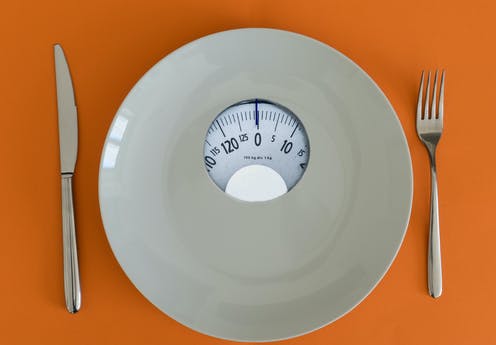
Eating disorders are the third most common chronic condition in adolescence, behind only asthma and obesity. They affect four per cent of the population, 90 per cent of whom are female, mostly teenagers and young adults.
With the COVID-19 pandemic, there has been a dramatic increase in eating disorders in Canada and internationally. A number of factors related to COVID-19 lockdowns and school closures — such as isolation from peers, disrupted routines, suspension of activities and increased stress and anxiety — may have contributed to this increase.
As a pediatrician with a significant portion of my practice dedicated to the care of those with eating disorders, I see that they are often misunderstood, sometimes leading to them being unrecognized.
We know that earlier treatment improves outcome, but we can’t treat what we don’t know exists. Those closest to someone who is struggling can be key in recognizing eating disorders, so let’s review some of the myths, learn how to recognize them and what to do if you suspect someone you care about has an eating disorder.
Table of Contents
Myth 1: Eating disorders are a choice

(Shutterstock)
We can choose to eat less to lose weight, can’t we? Can’t you then choose to start eating more to get things back on track? Unfortunately, it’s not that simple.
When the body is malnourished, the brain is, too. This changes the way the brain sees the body, and the way it sees food.
What is objectively seen as a small portion, the malnourished brain sees as way too much. What is objectively seen as thin, the malnourished brain sees as fat. The brain becomes more rigid around food: foods are either good or bad, with no in between.
Malnutrition also affects the gut: the stomach shrinks because it isn’t getting enough food, and the progress of this food through the intestines slows down to maximize how much nutrition is absorbed. This can make it physically uncomfortable to eat.
Myth 2: Eating disorders only impact mental health
Anorexia nervosa has the highest mortality of any psychiatric illness, and mortality risk increases with every decade that someone suffers with it.
Some of the mortality is from suicide, but some is from complications to physical health. In addition to the changes to the gut and brain, malnutrition can also affect the heart. When the body doesn’t get enough energy intake from food, it takes it from fat and muscle, including the heart.
Initially, this may present as dizziness, feeling cold due to lack of circulation and low energy, but with time, the heart slows down, sometimes to the point where it just stops.
In patients with bulimia nervosa, purging by inducing vomiting can cause dental enamel erosion, and the esophagus can become irritated from stomach acid coming up so frequently. Sometimes this causes heartburn.
The esophagus can also tear from the force of vomiting. A small tear can cause small amounts of bleeding, but sometimes these tears are large, and the bleeding is life-threatening. Vomiting can also create electrolyte imbalances, which can affect heart rhythm. These are just a few of the many physical effects of anorexia nervosa and bulimia nervosa.
Myth 3: You need to be under-weight to have an eating disorder

(Shutterstock)
About 20 to 35 per cent of those with an eating disorder have a history of being overweight. When they lose weight, they are often praised for it, reinforcing any unhealthy strategies they may have used, encouraging them to continue.
Losing weight rapidly can cause the same serious problems with electrolytes or heart function as being significantly underweight.
Recognizing risks
There are many things that can contribute to an eating disorder. Genetics and family history play a role, and going through puberty is a time that can be particularly stressful. We also know that being teased about your weight, being in a home where weight is talked about a lot, a personal or family history of dieting (especially a mother) can increase the risk. Social media and media exposure can also contribute.
Some clues that might signal the presence of an eating disorder include:
Dramatic changes in eating behaviours
- Eliminating whole food groups
- Becoming more rigid around food
- Not eating around others
- Cooking or baking, but not eating the food
- Playing with food more
- Breaking food into small pieces rather than taking bites
- More focus on food labels/content
- Spending lots of time in the bathroom, especially right after meals
Changes in exercise behaviour
- Exercise becomes compulsive (for example, it’s not OK to miss a workout)
While eating disorders can’t always be prevented, risks can be decreased. Eating together as a family, avoiding weight talk and not labelling food as good or bad can all help.
Encouraging activity because it’s fun, not to change the way someone’s body looks, is also key. Remember that all bodies are good bodies, and you can have health at every size.
If you suspect someone you know has an eating disorder, talk to them about it. If their brain is malnourished, they may not be able to see the problem, so these conversations can be difficult. The National Eating Disorder Information Centre is a great resource. As hard as it is, taking this step and getting them to their family doctor as soon as possible may save lives.
![]()
Ayisha Kurji does not work for, consult, own shares in or receive funding from any company or organisation that would benefit from this article, and has disclosed no relevant affiliations beyond their academic appointment.




























